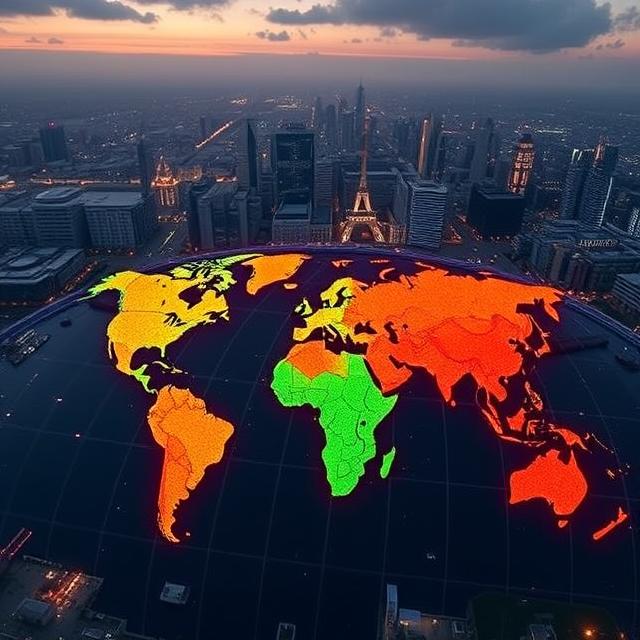The Power of Culture in International Business
In a rapidly globalized world, international trade is not just about economics it is about people, communication, and mutual understanding. Cultural norms, values, and expectations have a direct impact on how trade discussions unfold. That’s why many trade experts and policy strategists are turning to cultural change models to prepare for complex global trade negotiations.
Culture really dictates how we see time or handle conflict. While economic data and tariffs tend to get all the attention, the real breakthrough in trade negotiations takes place when the negotiators understand each other’s deeply held, silent cultural expectations. Missteps rooted in cultural ignorance can puncture the deal, whereas cultural fluency can unlock totally new doors.
What Are Cultural Change Models?
Cultural change models are well-crystallized tools and theories designed for understanding how culture acts like an influencer over behavior. They offer a framework for comparative analysis of cultural group differences. Famous models here are the Cultural Dimensions of Hofstede, the Lewis Model, and Trompenaars’ Seven Dimensions of Culture.
Aspects of culture are analyzed by each model. Some are about power distance or uncertainty, while others look at how cultures distinguish between themselves and others. These psychological corollaries can engender change in strategies offered up by negotiators and policymakers, helping them with some modification when stepping into future conversation with their opposite numbers from across the border.
With these models, negotiators at least have some idea of what is expected of them when talking to different cultures. They can venture to anticipate indirect communication in Asia or fast-paced and outcome-oriented Western cultures. In the high-stakes world of global trade negotiations, this knowledge is often the difference between success and failure.
Culture’s Direct Effect on Trade Talks
Trade discussions are not simply about data exchange; they are deeply human interactions shaped by emotion, trust, and perception. When trade delegates meet from different regions, they may have an obstacle in breaking down some of the basic differences in language, etiquette, and business practices. Yet, these hurdles can be largely precluded through appropriate training in these different cultures and cultural models themselves.
For example, in many Eastern cultures, relationship-building is essential before business can begin. This is quite different from Western cultures where negotiations are more transactional. If a Western team jumps straight into contracts without first showing respect and patience, they might alienate their counterparts. Cultural models can highlight such risks in advance.

The Impact of Cultural Change Models on Global Trade Negotiations
Integrating Cultural Intelligence Into Negotiation Strategies
Recent trade organizations are including some form of culture training into their negotiation strategies. Implementers are not only given a briefing on tariffs and trade laws but also on cultural expectations and behavior. Some multinational companies also have cultural analysts that provide support and guidance on in-house training and outside negotiation scenarios.
To argue economic benefits without taking into account this cultural topography is to consider the cultural change models as incomplete steps in a supposed new enlightened frontline. Otherwise, the trade leaders who shared union values or worked under whichever umbrellas of understanding were moving on to these along with traits such as giving, respect, and teamwork.
The models are used for human learning, but this has now been under scrutiny in ways where artificial intelligence platforms are dampened. Thus, they are programmed to trace the historical data on how the former global trade negotiations had taken place and to note trends that might have slipped in somewhere as misunderstandings vis-à-vis the cultural barriers. Such insights coming from both the human-oriented and AI models are termed hybrid, making the ultimate gain possible through negotiation.
Shaping the Future of Global Trade
As the global economy becomes more interconnected, culturally aware negotiators are no longer viewed as a luxury but rather a necessity. Using cultural change models as part of a broader strategy ensures that nations and companies alike can approach negotiations with nuance and care.
The most resilient global trade negotiations are those rooted in mutual respect. By acknowledging and preparing such marked differences from each other that they might better find a corner from which common grounds could be reached and partnerships nurtured. An attribute, seen as a soft skill in the past, cultural sensitivity has developed into its present state of an almost frantic necessity for modern trade.
Cultural change models help strengthen global trade negotiations by enhancing understanding, strategy and communication across cultures.
The Future of Free Trade Zones in New York and Warehouses Globally
The Impact of Global Housing Slump on Urban Planning Organizations



